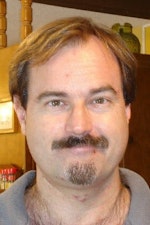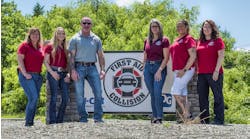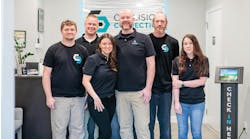When a shop is called Smith Auto Repair, you have to do something special to stand out a bit. Fortunately Smith’s reputation is firmly founded on electrical repair, which began when they started off rebuilding generators, alternators and starters nearly 70 years ago in Yakima, WA.
“We’re in a high agricultural area, so we did everything for everybody,” explains Jim Thomas, the current owner. “We did heavy equipment like agricultural tractors, commercial vehicles—and still do. We have always tried to be the shop that could find the solution for these different pieces of equipment. What we did as a rebuilder was to bring the unit in, such as a starter motor, tear it down and analyze it.”
Like CSI investigators, Thomas’ technicians can deduce if a starter had a tune up issue or bad glow plugs, since evidence of excessive cranking is pretty obvious once it’s taken apart. But knowing the market as they do, their insight sees beyond the technical problems.
“We can look at these units and tell the owner, ‘maybe you’ve got a guy with a hearing problem; he’s trying to start the equipment while it’s running,’” elaborates Thomas. “We are able to give our clients feedback like this, which is invaluable to our customer base--and that’s a value-added type of approach to business.”
Of course if an equipment owner also had an errant Cadillac that won’t crank over when hot, or experienced issues with early Chevy generators that had power steering pumps mounted on the back, these ‘oddball’ projects found their way into the shop, which helped Smith Electric evolve from rebuilding and supply to all-out repair.
“A lot of that work has to do with our experience level,” Thomas maintains. “When you’re an auto electric specialist, certainly a lot of those problems are figured out pretty quickly, (to where) we’ve developed a close working relationship with area dealerships, auto parts stores and other repair shops. Plus we now have all the proper test equipment and scan tools.”
For example, Thomas reports they use a Midtronics battery tester, which is a little more sophisticated than the more commonly used load tester. “We find problems that get by a lot places, even the dealers. But then we’ll use a load tester and sometimes find problems that the Midtronics misses, so now we do both because we‘ve learned over the years that you’ve got to be sure what the battery is capable of doing, otherwise you’re dead in the water.”
‘Cover the basics’ is a criteria Thomas feels is missed more than anything, so before they even put a scan tool on a vehicle, questions are posed, like are the cables corroded? Is the battery bad? Is there a voltage drop in the system? What is the real issue? “Our guys will go out and test the positive and it tests great,” he notes, “but then go to the negative side and get a 3 and a half volt drop. Replace the negative cable, clean up some connections—poof—end of problem.”
Smith still does a lot of heavy equipment and commercial vehicles. “We get into Class 6 and 7 mid-size diesel trucks. We don’t get too much into Class 8, full-sized semis, since they’re handled by bigger shops--and quite frankly, take up so much space. But we do get into RVs: a lot of pusher diesel work, gas units, V-10s; again it comes back to the situation where maybe it isn’t a mechanical issue but a problem with batteries not charging, an on-board inverter that’s giving troubles, or maybe even the house-side batteries not working properly.”
Restoration projects are also not uncommon in the wide-open market the shop deals with. The cars can range from street rods to full-on concourse d’elegance restos. “Like anything, it’s one of those things where you take what comes in,” Thomas relates. “We don’t go out and solicit it heavily, but because we’re one of the places that will do this work, the business comes to us. Whether you get a tractor that’s being restored or somebody who decides to renovate a wood boat, we get into the re-wiring and upgrading.”
One of the things Smith’s specializes in is restoring old generators from the 1920s or 30s. “Customers will want it to look and run like it did when it was brand new,” says Thomas. “We’ll strip it down, bead-blast all the paint off of it, and paint it back to the exact factory colors, all the things needed to make it original. If it’s a numbers matching vehicle, of course we’ll make sure that all of the housings are correct.”
Another niche market they’ve had success with is building custom speedometer cables. “Older agricultural trucks are only used 4 months out of the year during harvest, but still have to have all of the right safety equipment, including speedometer functions,” Thomas explains. “A Class 6 truck with an old mechanical speedometer has a cable that’s 30 feet long.”
Should this break, creating a new cable is less expensive and less hassle than converting the vehicle over to an electronic speedometer with a speed sensor. “So we looked at what it would take to get into this market and found a speedometer shop that was going out of business,” reports Thomas. “We were able to buy all the tools and inventory at 10% on the dollar. We then learned what needed to be done and it’s actually been a fair business for us.”
While the shop’s been around for 69 years, Thomas bought out the original owners 30 years ago, and he proudly reports that his son is in the process of taking over the business from him; by the time you read this, Matt Louis will be the new owner. “I’m phasing out,” he laughs, “at the same time training him to take care of all the nuances of business, run our very experienced crew, and continue to grow the company.”
No doubt Smith Auto Repair & Electric will continue to stand out.



